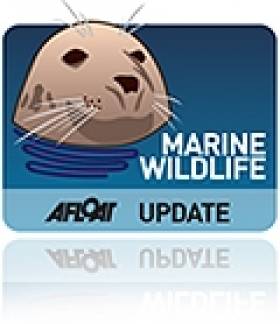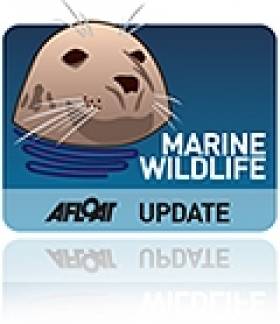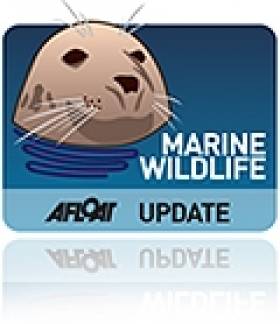Displaying items by tag: Harbour Porpoises
European Commission Urges UK To Protect Harbour Porpoise
#MarineWildlife - Via the Irish Whale and Dolphin Group (IWDG) comes news that the European Commission (EC) is asking the United Kingdom to designate protected areas for the harbour porpoise.
The EU legislation on the conservation of natural habitats and of wild fauna and flora (Habitats Directive) requires member states to propose a list of protection sites for a number of species that are native to their territory, ensuring their protection from interventions which could seriously compromise their ecological character.
Despite a large number of harbour porpoise – a protected marine species in the Republic of Ireland – regularly found in its waters, the UK has, according to the EC, "so far proposed only one small site in Northern Ireland, exposing some of the identified sites to the risk of offshore wind farm development."
The EC adds that it has "repeatedly urged the UK to fulfil its key obligations for this species, but no further designations of sites have been proposed."
This current acton by the EC follows a letter of formal notice sent to the UK government in June 2013. If the UK fails to reply within two months, the commission may refer the case to the EU Court of Justice.
Dublin Bay Porpoises Protected Under New Irish SACs
#MarineWildlife - The Irish Whale and Dolphin Group (IWDG) has welcomed the designation of a new special area of conservation (SAC) for marine wildlife in Dublin Bay.
As reported yesterday on Afloat.ie, Heritage Minister Jimmy Deenihan was on board the IWDG's research vessel Celtic Mist in Dun Laoghaire on Tuesday 16 July to lance the group's new atlas of marine mammal distribution in Irish waters - an event at which he also confirmed his extension of the protections already afforded to whales and dolphins over a number of coastal sites around Ireland.
The Dublin Bay SAC, running from Rockabill off Skerries to Dalkey Island, is one of the six new sites proposed by the minister's department late last year.
The list also features Blackwater Bank in Co Wexford, the West Connacht Coast, Hempton's Turbot Bank in Donegal, the Porcupine Bank Canyon off Kerry and the South-East Rockall Bank.
According to The Irish Times, the Dublin Bay conservation zone alone covers a sea area of 27,000 hectares and will extend protections under the 1992 EU Habitats Directive to the area's population of harbour porpoises.
Concern Over Impact of Seismic Survey on Dublin Bay Porpoises
#PORPOISES - The Irish Whale and Dolphin Group (IWDG) has expressed concern over the potential impact of a 2D seismic survey on harbour porpoises in Dublin Bay.
As recently reported on Afloat.ie, Providence Resources has been granted a foreshore license for the Dalkey Island Prospect in the Kish Bank Basin to allow for a well site survey, and exploration well and a seismic survey.
But the IWDG has written to Minister of State Jan O'Sullivan suggesting that he Environmental Risk Assessment (ERA) conducted on the area is deficient.
The group argues that the ERA has not assessed the footprint of the seismic survey, saying the mitigation proposed is inadequate and that the disturbance and impact to cetaceans – especially harbour porpoise – is "potentially significant and in contravention of national legislation and EU Directives".
Moreover, the IWDG claims that an Environmental Impact Assessment (EIA) of the effect of a seismic survey on harbour porpoise "doesn’t seem to have been carried out".
The harbour porpoise, which is an Annex II species, is entitled to strict protection. The species has been recorded at very high densities in Dublin Bay during surveys carried out by the IWDG in 2008 on behalf of the National Parks and Wildlife Service (NPWS).
The group says that impact monitoring is needed to gather data on the effects of seismic surveys on harbour porpoises, and recommends it as an additional condition on the license.
"Compliance with the NPWS guidelines does not constitute monitoring and as porpoises are elusive and spend 95% of their time underwater and are difficult to see in a sea state greater than Force 1, the guidelines do not serve to protect them once the works are on-going.
"In addition there are specific data required on their site usage prior to the works and a monitoring plan to assess how they recover after the works."
Moreover, the IWDG claims that in this instance the NPWS "are negligent, as they are not providing strict protection to an Annex II species."
Earlier this year Environment Minister Phil Hogan rejected a call from Tánaiste Eamon Gilmore and others for a public enquiry into the Dalkey Island foreshore licence.


























































